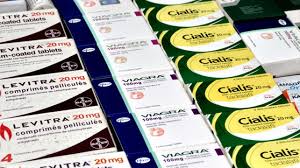
Eliquis: Comprehensive Overview and Benefits
Eliquis, known generically as apixaban, is an anticoagulant medication that plays a crucial role in preventing and treating blood clots. It has become increasingly popular due to its effectiveness and safety profile. Eliquis is commonly prescribed for conditions such as atrial fibrillation, deep vein thrombosis (DVT), and pulmonary embolism (PE). The following sections will delve into the indications and uses of Eliquis, its mechanisms of action, potential side effects, and essential considerations for patients.
The primary indications for Eliquis can be explored in more detail through a variety of resources. For instance, you can check the Eliquis eliquis ενδειξεις page for comprehensive details on its medical applications and guidelines.
What is Eliquis?
Eliquis is classified as a direct oral anticoagulant (DOAC), inhibiting factor Xa in the coagulation cascade. By blocking this key factor, Eliquis effectively prevents the formation of fibrin clots, which are crucial in the development of blood clots. Unlike traditional anticoagulants, such as warfarin, Eliquis has a more predictable pharmacological profile, often eliminating the need for routine monitoring of blood levels.
Indications for Use
Eliquis is primarily indicated for the following conditions:
- Atrial Fibrillation: Individuals with atrial fibrillation often have an increased risk of stroke due to the formation of clots in the heart. Eliquis reduces this risk significantly.
- Deep Vein Thrombosis (DVT): DVT occurs when a blood clot forms in the deep veins of the legs. Eliquis is used to treat DVT and to help prevent its recurrence.
- Pulmonary Embolism (PE): This condition arises when a blood clot travels to the lungs, causing serious complications. Eliquis is effective in both the treatment and prevention of PE.
- Postoperative Venous Thromboembolism (VTE) Prophylaxis: Eliquis is also indicated for use in patients who have undergone hip or knee replacement surgery to prevent blood clots.
Dosage and Administration
The dosing of Eliquis is typically based on the condition being treated and the patient’s overall health. The standard dosing guidelines for atrial fibrillation, for example, are often 5 mg taken twice daily. In certain situations, a reduced dose may be recommended based on renal function or weight considerations.

Patients should be counseled on the importance of taking Eliquis consistently at the same times each day and for as long as prescribed. Stopping Eliquis suddenly may increase the risk of blood clots.
Benefits of Eliquis
Eliquis offers several advantages over traditional anticoagulants:
- Less Monitoring: Unlike warfarin, patients taking Eliquis do not require regular blood tests to monitor their INR (International Normalized Ratio).
- Fewer Dietary Restrictions: Patients on Eliquis do not have to avoid certain foods, particularly those high in vitamin K, which is a significant consideration for those on warfarin.
- Rapid Onset of Action: Eliquis takes effect quickly, often within hours, providing prompt anticoagulation.
- Lower Risk of Certain Side Effects: Research indicates that Eliquis may have a lower risk of major bleeding events compared to some older anticoagulants.
Potential Side Effects
As with any medication, Eliquis comes with potential side effects. The most common side effects include:
- Bleeding complications, such as unexpected bruising, nosebleeds, or bleeding gums.
- Gastrointestinal issues including nausea and stomach pain.
- Severe allergic reactions, though these are rare.
Patients are urged to seek medical attention if they experience any signs of severe bleeding, such as blood in urine or stools, or if they have a sudden headache or dizziness.
Considerations and Precautions
Before starting Eliquis, it’s important for healthcare providers to assess the patient’s medical history, particularly regarding their risk factors for bleeding. Certain populations, such as the elderly or those with kidney impairment, may require closer monitoring and dose adjustments.
Patients should also be aware of the medications that can interact with Eliquis, including anti-inflammatory drugs, other anticoagulants, and certain antibiotics. Always inform healthcare providers about all medications being taken.
Conclusion
Eliquis is a leading anticoagulant that has revolutionized the way blood clotting disorders are managed. With its ease of use, effectiveness, and favorable safety profile, it is a preferred choice for many clinicians. Patients considering or currently using Eliquis should maintain open communication with their healthcare providers to ensure optimal treatment outcomes.

